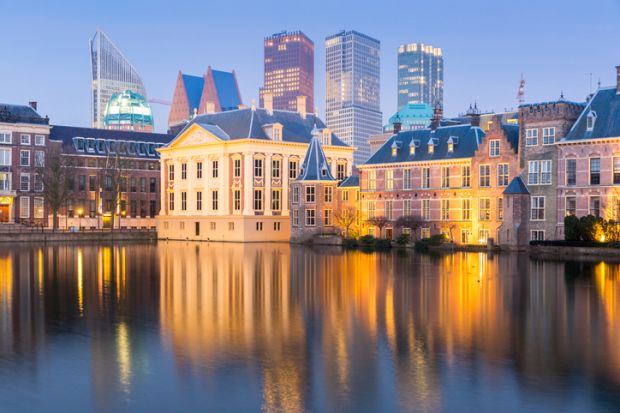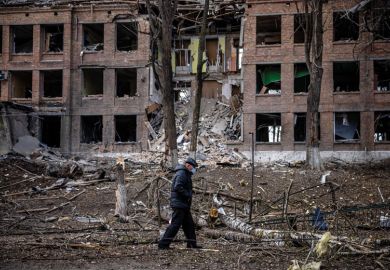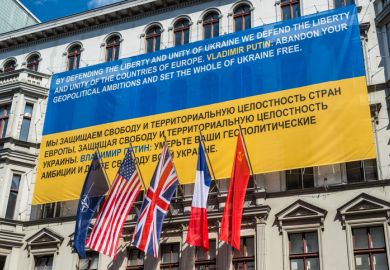Universities in the Netherlands have joined the growing number of sectors cutting ties with institutions in Russia and Belarus in response to the invasion of Ukraine.
The decision, triggered by an urgent appeal from the Dutch Ministry of Education, comes a week after a similar move by Germany. Denmark, Latvia and Lithuania have also since cut ties.
The Royal Netherlands Academy of Arts and Sciences, the Dutch Research Council and associations representing universities, colleges and university medical centres said in a joint statement that they supported the decision but “[regret] its consequences for education and research”.
In his letter urging the organisations to cut formal contact, education minister Robbert Dijkgraaf acknowledges academic freedom was “at least temporarily at stake” but says that the “horrific nature” of events in Ukraine made the request necessary.
He asked that all Dutch research and education partnerships with Russia and Belarus should be frozen, including the exchange of money, data and knowledge. Academics from those countries should also be barred from events, he said.
No new collaborations can be started and researchers affiliated with a Russian or Belarusian institution will not be invited to review research proposals.
The organisations said academics could stay in touch with colleagues in Russia or Belarus “where this is appropriate”, a decision that could involve consultation with institutional security teams or the ministry’s knowledge safety desk.
“Maintain good informal contacts between students and researchers in the Russian Federation and Belarus, especially in these times,” says Professor Dijkgraaf in his letter. “These contacts will later form the basis for normalising educational and scientific relations again.”
The Dutch decision comes after fighting engulfed Europe’s largest nuclear power plant at Zaporizhzhia and the Russian parliament passed a law imposing a jail term of up to 15 years for spreading intentionally “fake” information about the armed forces.
The spreading freeze on formal academic links to Russia has also reached some pan-European bodies. Allea, the European Federation of Academies of Sciences and Humanities, has suspended the Russian Academy of Sciences and the National Academy of Sciences of Belarus.
The federation said that the move could have unintended consequences on individual academicians, but that “the ability of these academies to act autonomously and independently from their governments has come into question”.
In addition to its freeze, the Dutch government has offered €1 million (£824 million) to help with the cost of hosting Ukrainian students, teachers and researchers who have fled and to help Ukrainian, Russian and Belarusian students and staff in the Netherlands facing severe financial problems as a result of the war.
The organisations said 917 Ukrainian students and several hundred employees are already based in the Netherlands and would be supported as much as possible.
Register to continue
Why register?
- Registration is free and only takes a moment
- Once registered, you can read 3 articles a month
- Sign up for our newsletter
Subscribe
Or subscribe for unlimited access to:
- Unlimited access to news, views, insights & reviews
- Digital editions
- Digital access to THE’s university and college rankings analysis
Already registered or a current subscriber?








